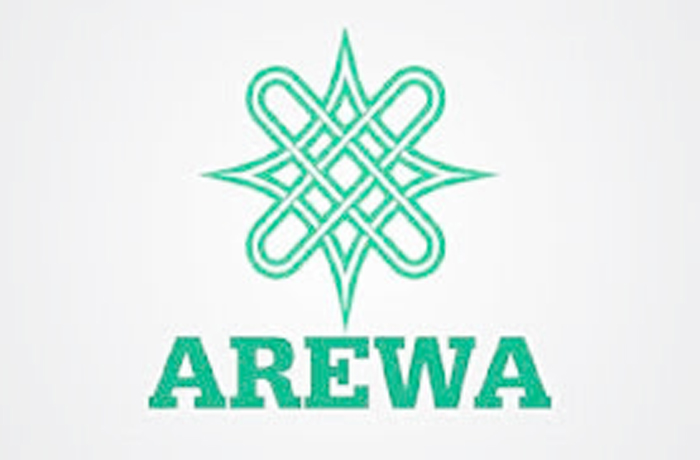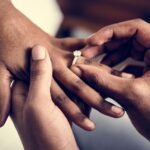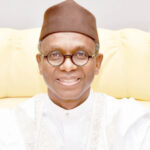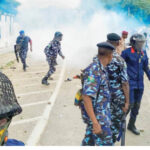By Abdullahi D Mohammed
Arewa, is the nomenclature, depicting north, in Hausa. Politically, the region is further divided into three distinct subgroups – North West, North East and North Central.
It is the most populous and diverse region. The numerical strength of the region makes it the centerpiece for any national policy or political rendition.
The preeminence of the region was made possible by a number of factors, and activities of some individuals. The status and stability of the region revolve around Sir Ahmadu Bello, (1910-1966) the Sardauna of Sokoto and premier of the region.
His people-centric worldview regardless of faith or creed was what endeared him to many. He epitomized everything excellence and simplicity.
It was on this basis the North was founded. Equity, Justice, Peace and Unity.
Since his demise, the vacuum he left “seems” too big for, or too sophisticated to fill by most leaders the North birthed. In reality, it isn’t too big, because people he personally mentored and passed the baton to a crop of leaders.
The Jam’iyar Mutanen Arewa, or Northern People’s Congress, was birthed by the late premier to provide a sense of direction and set the theme for the development of the region. Sadly, it died with the premier, in 1966.
After the military interregnum, in the succeeding years, 1966-1999, there was an absence of a formidable central authority to guide the region and keep alive the lofty dreams — a single, united and strong indivisible entity, which the late premier had.
However, at the turn of the century, in 2000, after the return to civil rule, there was an emergence of numerous sociocultural and political organizations.
The resurgence of these groups was primarily a result of fear of dominance or the search for political relevance within the Nigerian federation.
The Arewa Consultative Forum, ACF, started off on a strong footing as a non-partisan sociocultural group, which seeks to unite the region and put it on a threshold of economic stability within the larger Nigerian space. At some point, it got embroiled in partisan politics and crumbled. The region is left with no central authority or leadership.
Since then, there were numerous splinter groups, each seeking to speak for the region, but none had the interest of the region, as the motivation for the struggle. Individuals, most of whom were, and still are politicians who lost relevance were often the founding members or sole owners, or financiers of such groups. Their motivation is hinged on personal aggrandizement, not the general good of the Arewa.
Leadership of such groups does not draw or seek legitimacy from the common Arewa population, whose concern is mostly education, security, health infrastructure, good governance, etc.
These groups get hyperactive usually on the eve of an election year to negotiate political relevance, safeguard their investments and cut a deal with candidates.
An attempt by the Arewa Consultative Forum, ACF, in collaboration with four other groups to negotiate a better future for the region through its Joint Arewa committee is, for all intents laudable initiative. The 2-day engagement held at the Arewa House, Kaduna would have been commendable, had it not been dogged by political razzmatazz, which failed to bring all candidates, on board, and claim of a certain bias within the organisers was rife.
For all its glamour, the event was more or less elitist.
If such groups parading themselves as northern leaders and elders had a genuine concern for the state of the region, they would have started long ago, the process of reviving the textile industries by bringing to life Arewa textiles in Kaduna and Kano. Cotton industries, by reviving Katsina and Zamfara rolling mills. These are some economic chips, central to the economic development of the region, and the nation in general.
ACF was very much active when the Bank of the North folded. Yet it could not compel the 19 governors to save it from the catastrophic collapse.
The old guard and self-appointed Arewa leaders had yet to come to terms or initiate a program to address age long malaise — street begging. They failed to put forward a detailed roadmap to address and draw a line between the Almajiri Quranic School system and Almajiranci, the latter, which has the propensity to breed an army of street urchins who became recruits to criminal elements, like bandits and terror groups.
If such Arewa groups had organised a regional summit, there wouldn’t be a need to go cap in hand, courting politicians to look to the north for development.
The region has what it takes to build and consolidate a modern economy. Both human and natural resources are not in short supply. Dangote and BUA industries alone, given the right atmosphere, could turn around the region and transform it into an enviable economic gateway.
Till date, no leader or leadership of any pro-north group has identified the need for a regional rail line, for economic integration. Aside from the ease of transporting farm produce, the value chain derivable would be immense and agriculture would be revolutionised.
Instead of jostling for political relevance, self-styled Arewa leaders should get more practical, committed and resolute in the pursuit of policies, which could unite and propel the region to a height so enviable. The region has been hurt and left bleeding by leaders/elders who benefited directly from the legacies of the great Sardauna. They watched, as the region slipped to the bottom of all indices of development.
Citizens’ engagement in politics, is good. Holding elected officials accountable is awesome. Pressure groups are healthy, especially in a democracy. But such movements should be championed by the populace, not the other way, where some few individuals call the shot, and push for matters or policies, which have direct bearing on their needs, at the expense of the majority.
Abdullahi D Mohammed is with the Department of Political Science and International Studies, Ahmadu Bello University Zaria

 Join Daily Trust WhatsApp Community For Quick Access To News and Happenings Around You.
Join Daily Trust WhatsApp Community For Quick Access To News and Happenings Around You.


